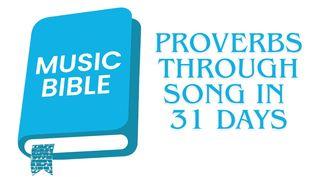The Table: What a Boy Discovered at Campಮಾದರಿ

The Balance of Wisdom
I woke up at 5:47. Always seventeen minutes before the official alarm. My brain doesn't know snooze - it's either on or off. During personal devotions, I read Ecclesiastes 3: "There is a time for everything, and a season for every activity under the heavens" (Ecclesiastes 3:1, NIV). Words I knew by heart but today sounded different. Like God was tuning the strings of my soul to hear new music.
After breakfast, while everyone headed to Bible study, I made a detour. Three steps left, seventeen to the porch. Precision calms me. Numbers never lie.
Sophia was already playing.
Seventeen years old, volcano energy, the kind of girl who laughs loud and hugs everyone. At ping-pong, she was a magnificent catastrophe. Every shot a desperate attack, every rally a battle to the death. She knew no defense, only offense. No patience, only fury.
Against her was James, one of the older guys. Twenty-three, pastor in training, groomed beard and eyes always slightly raised toward heaven. The type who quotes verses at breakfast and prays aloud over toast.
I watched them for twenty minutes. Sophia lost. Always. Not because she was less skilled, but because she didn't know there was anything beyond attack. Every ball was a declaration of war. Every shot a cavalry charge. She'd never learned the art of strategic retreat.
James, on the other side of the table, played like he preached: always in control, always measured, always perfect. But there was something dead in his shots. Precision without passion. Technique without soul. He won every game and lost all the beauty.
I opened my notebook and wrote: "Sophia is spring gone mad. James is eternal winter. Both are getting everything wrong."
During Bible study, the pastor talked about biblical balance. "Wisdom," he said, reading from Proverbs, "dwells together with prudence and possesses knowledge and discretion" (Proverbs 8:12, NIV). He spoke of Solomon asking for a wise heart to govern. Of Jesus, who was gentle as a lamb and brave as a lion.
I thought about Sophia, who didn't know when to stop, and James, who didn't know when to start.
In the afternoon, I returned to the porch. Sophia was crying on the bench, paddle thrown on the ground. "I can't do it," she whispered. "I always lose. No matter how hard I try."
I sat beside her. At a safe distance - seventy centimeters, the perfect measure for someone like me who struggles with physical closeness. "Have you ever seen a tree in a storm?" I asked.
She looked at me strangely. "The ones that survive aren't the strongest. They're the ones that know when to bend."
"But I don't know how to bend," she said. "I only know how to attack."
"And James only knows how to defend. You're both missing the same thing: timing."
She stopped crying. "Timing?"
I thought about the words from Ecclesiastes I'd read that morning. "There's a time to attack and a time to wait. A time for strength and a time for gentleness. A time to speak and a time to be silent." (Ecclesiastes 3:1-8, paraphrase). Ping-pong is the Bible in motion: everything has its moment.
"Want me to show you?" I asked.
Sophia nodded. I picked up the paddle. For the first time in two days, I played.
Not against her. With her. I started with gentle shots, sending the ball exactly where she could hit it well. She attacked, as always. I absorbed the energy, softened it, sent it back transformed. "Ecclesiastes 3:3," I whispered as we played. "A time to tear down and a time to build."
Slowly, Sophia began to feel the rhythm. She discovered there was beauty in waiting for the right moment, too. That the pause between shots wasn't lost time but gathered energy. That defending wasn't surrender but preparation.
After ten minutes, James approached. "Can I play?" Sophia handed him the paddle. "But try attacking sometimes," she said, smiling. "We don't always have to be perfect."
James started playing against me. At first, it was the usual winter: total control, zero risk, zero life. But then, maybe infected by Sophia's energy, he tried a more aggressive shot. He missed. He laughed. "I've never done that," he said, amazed. "Missing makes me feel... free."
"Ecclesiastes 3:4," I replied. "A time to weep and a time to laugh." I thought of Jesus who wept for Lazarus and laughed with children. Who got angry in the temple and was gentle with the Samaritan woman. Who knew when to be stone and when to be water.
We played until evening. A perfect triangle: Sophia learning patience, James discovering courage, me seeing God write lessons of wisdom on a ping-pong table.
"Ping-pong," I wrote in my notebook that evening, "is the dance of balance. Attack and defense, strength and control, action and patience. Like biblical love that Paul describes: not just kind, not just strong. Kind when kindness is needed, strong when strength is needed." (1 Corinthians 13:4-7, paraphrase).
Jesus wasn't always the same Jesus. He was the Jesus the situation required. Lamb with the wounded, lion with the oppressors. Silent before Pilate, thundering with the Pharisees. Not because He was inconsistent, but because true love knows that every moment asks for a different response.
Sophia had learned that strength without control is just violence. James had discovered that control without passion is just death. I had seen that biblical wisdom isn't a fixed rule but a continuous dance. A balance found anew every moment, every breath, every shot.
"To every thing there is a season" wasn't a list of separate moments. It was an invitation to live like Christ: fully present to what this moment, this person, this ball required of me.
In the silence of the porch, as night wrapped around the empty table, I understood that God hasn't called us to always be the same as ourselves. He's called us to always be faithful to what love requires. Even if it means changing rhythm, even if it means being different from who we were yesterday.
Ping-pong had taught me that in one afternoon. The Bible had promised it to me all along.
In my notebook, I wrote: "Second day. I saw Ecclesiastes 3 dancing on a ping-pong table. Sophia learned patience. James found courage. I discovered that balance isn't standing still in the center. It's dancing between extremes with the grace of one who knows every moment asks for a different response."
Tomorrow I want to see what else God hides in the sound of a falling ball.
ದೇವರ ವಾಕ್ಯ
ಈ ಯೋಜನೆಯ ಬಗ್ಗೆ

I see patterns where others see chaos. I count things they ignore. At camp, everyone avoided the corner table. But I watched. And in ten days, that table taught me something that will haunt every church, every prayer, every moment you think you understand God. What I discovered there... they didn't prepare you for this in Sunday school. Some truths hide in plain sight.
More
ವೈಶಿಷ್ಟ್ಯದ ಯೋಜನೆಗಳು
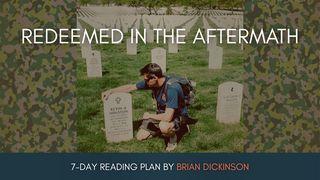
Redeemed in the Aftermath

Unmasked — Rediscovering Your True Identity in Christ
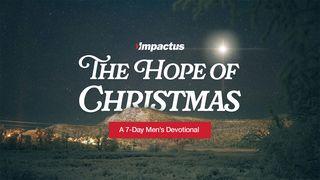
The Hope of Christmas: A Men's Devotional
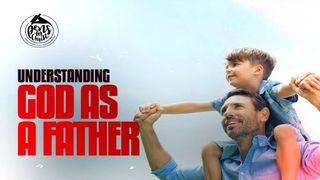
Understanding God as Father

When the Flood of the Enemy Comes
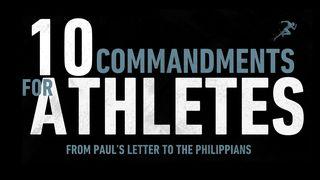
10 Commandments for Athletes From Philippians

Hope Through an Elder’s Counsel
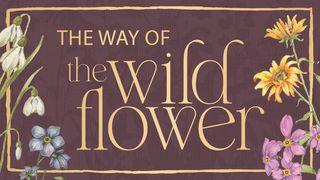
The Way of the Wildflower: Gospel Meditations to Unburden Your Anxious Soul
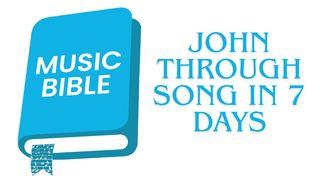
John Through Song in 7 Days
